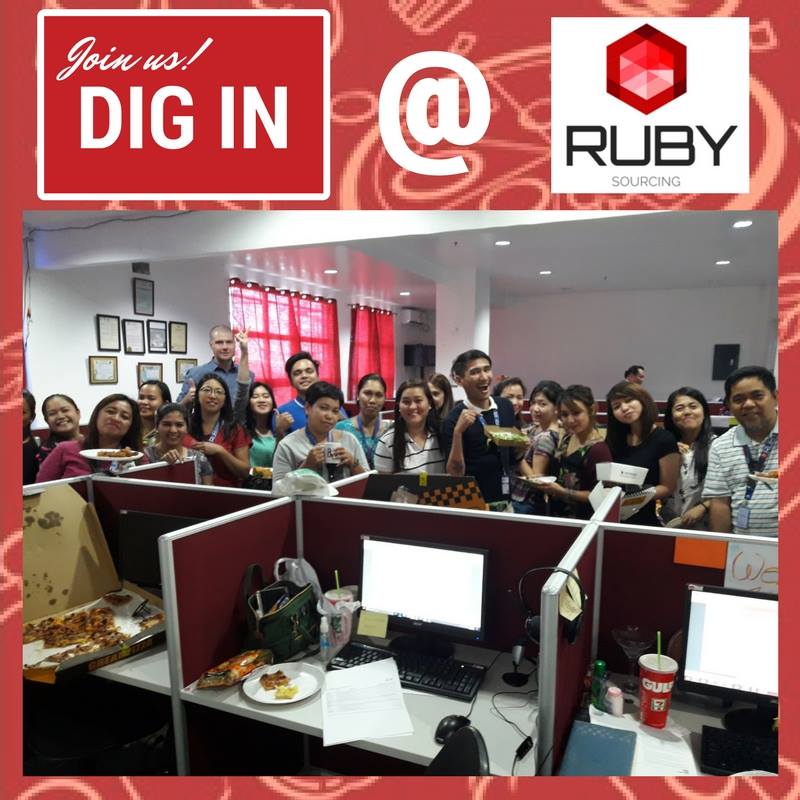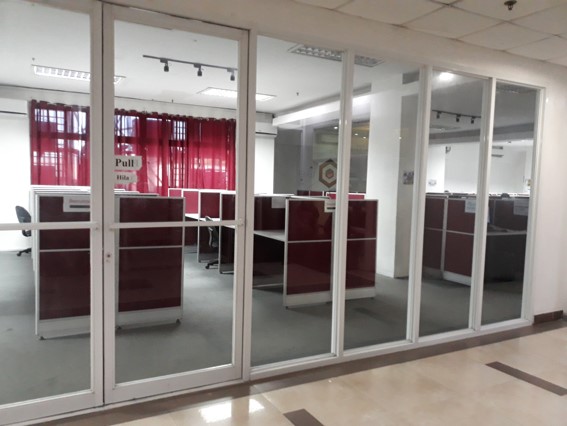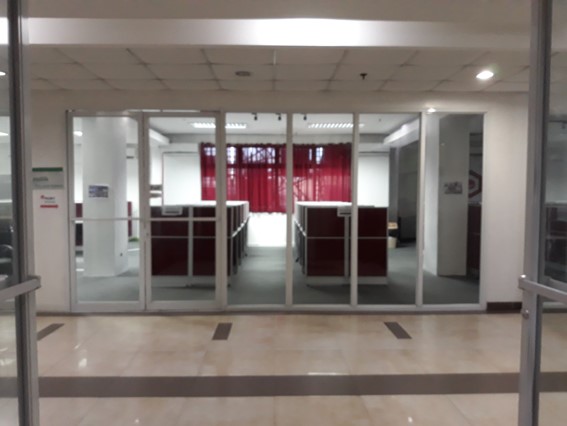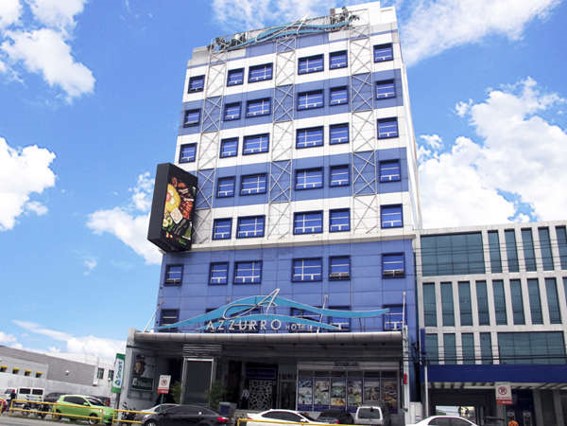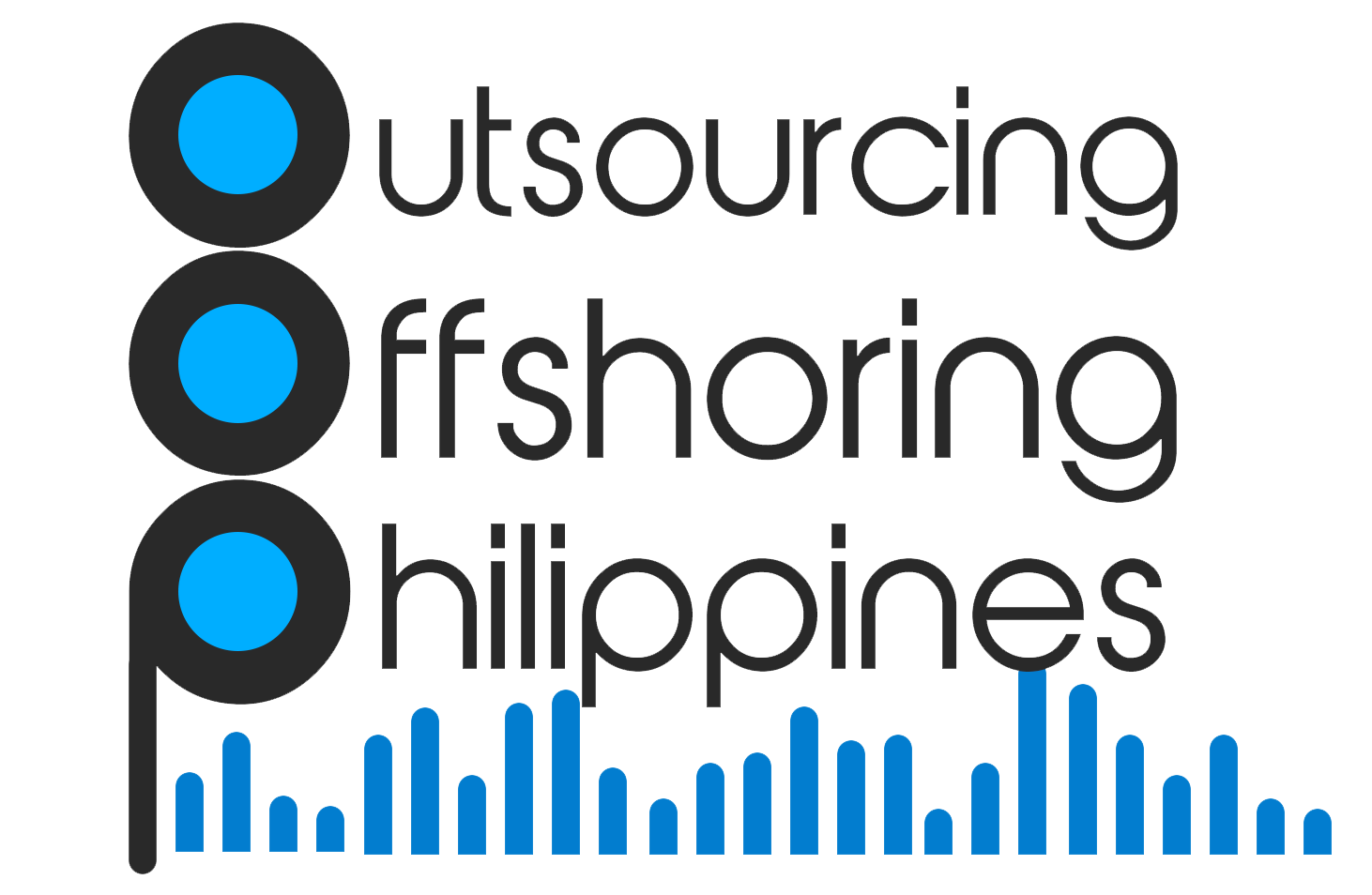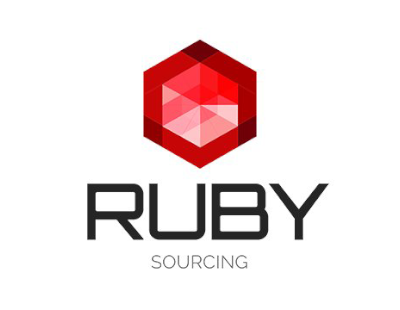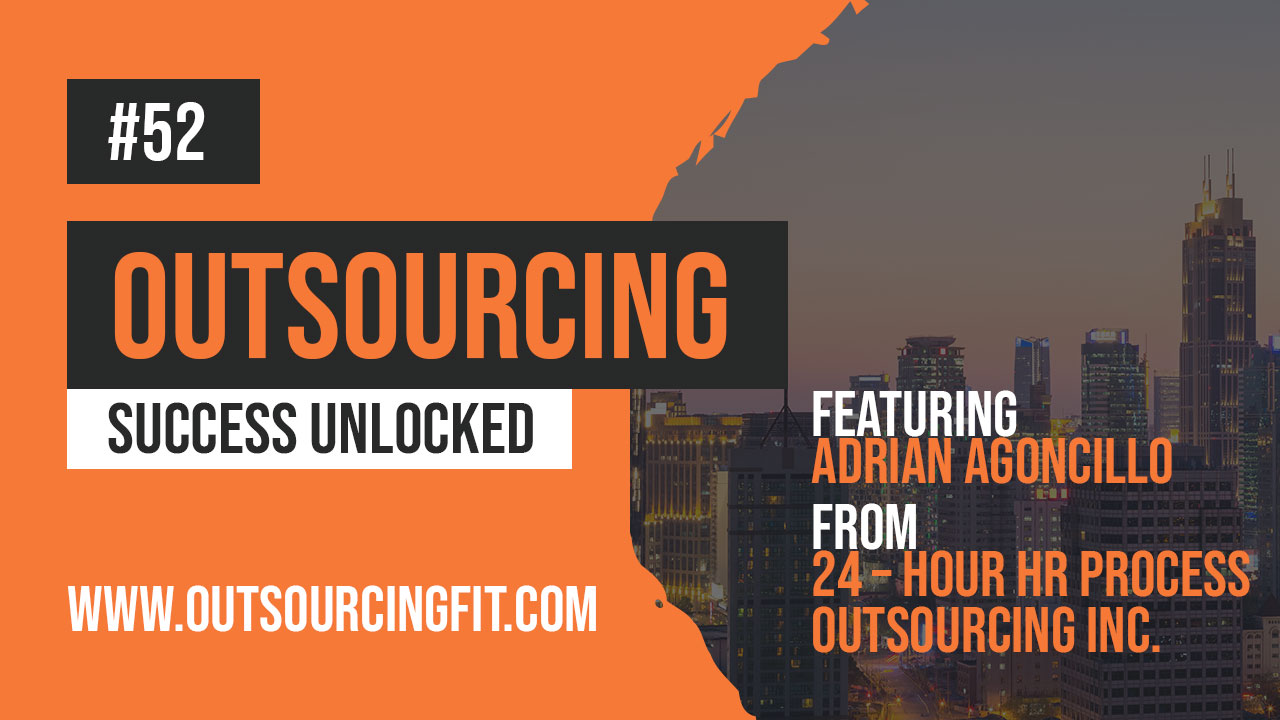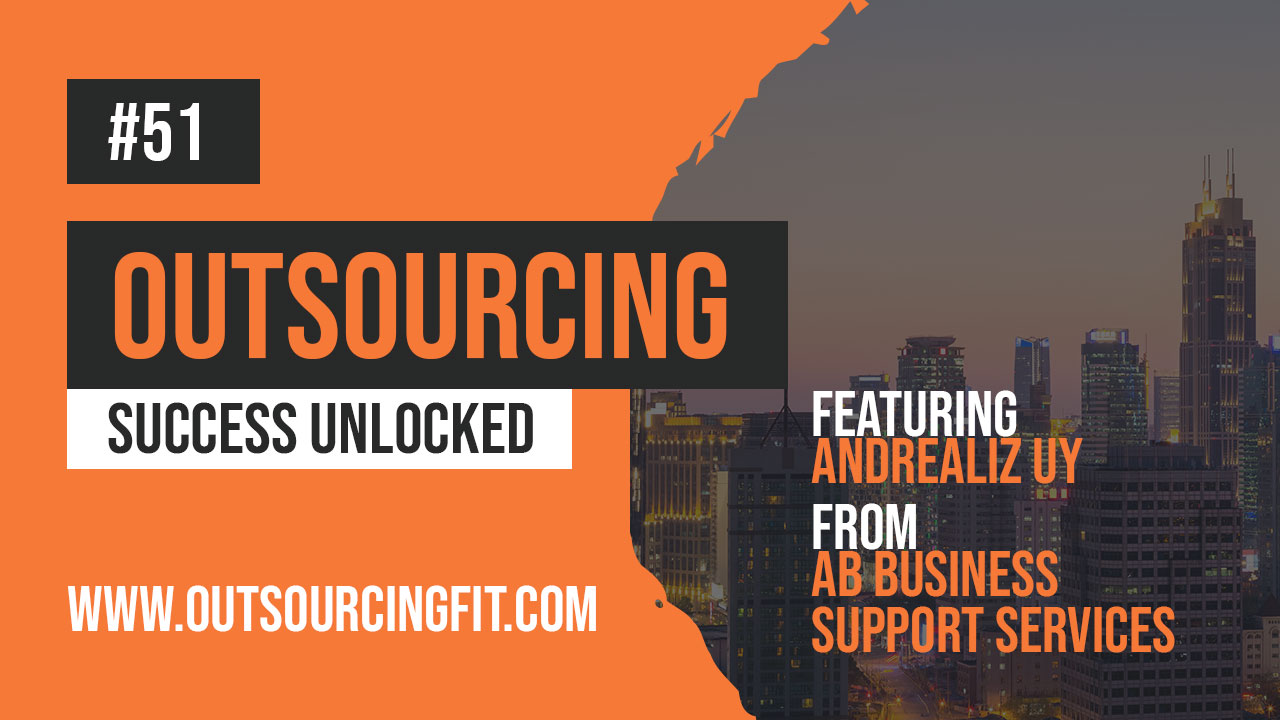 Guest: Stephen Atcheler
Guest: Stephen Atcheler
Presenter: Henry Acosta
Guest Bio: Stephen is one of the co-founders of Ruby Sourcing. He pioneered outsourcing in the real estate industry in Australia when he was 24 in which he has found a lot of success. The chain of events led him and his partner, Dan Brunes, to the Philippines. They decided to open up an outsourcing firm in the Philippines and has helped multiple kinds of businesses grow alongside their BPO Firm. Stephen’s success with Ruby Sourcing can be attributed to his passion, drive and experience to making sure his partners and clients grow along with him.
Segment Overview: Ruby Sourcing is a 100% Australian owned BPO firm that firmly believes that “Your Success is Our Success”. They look to provide their staff and clients the best opportunities at growth and success. Equipped with the best staff, they are ready to help build on their clients growth and stability so they can spend more time working on their business and not in it.
Address: 2nd Floor, Unit 210. JIM Building, McArthur Highway, Balibago Angeles City, Pampanga, Philippines, 2009
Contact: International – (1300 718 837) || [email protected]
Website: www.rubysoucing.com.au
To know more about Ruby Sourcing, listen to the podcast below!
Our talk with Stephen begins at the 1:35 mark of the podcast.
TRANSCRIPT
Henry Acosta: This is the Outsourcing and Offshoring Philippines podcast. My name is Henry Acosta, the host of the podcast. Our guest today is the Co-founder of Ruby Sourcing. He started out very young in this venture into entrepreneurship when he was 24 and somehow, he found outsourcing since he put his hand into the pot at a very young age but now he’s one of the Co-founders of Ruby sourcing. His name is Stephen Atcheler and he’s with us today to talk about Ruby Sourcing, the Philippines, and what it’s like to work with them and maybe even how their office is looked like. Welcome to show Stephen and thank you so much for coming on.
Stephen Atcheler: Thanks for having me on.
Henry: Thanks for giving us the time. And can you tell us a little bit more about yourself and tell us more about Ruby Sourcing?
Stephen: Well basically, me and my business partner Dan, we were talking at the time we are friends and we’re both going into business and at that point, he had started a carpet cleaning business and I had started a real estate business because I was previously a salesperson. So just after I started the real estate office here, he was a Property Manager in that same office I was working in as a salesperson. He decided to go out on his own and then I had started outsourcing and then he started outsourcing at very similar times just through the fact that the overheads were just finding that hiring admin staff for the amount of incoming business that we had to keep hiring admin staff was just taking too much of the profit away and we were barely breaking even. So it just forced us really to look at other ways to do things. So yes, I explored outsourcing and hopped into that I think is 2012 or 2013 and hired varying different models until I really took the step and went over to the Philippines and had a look at all the different ways that outsourcing was done and then eventually, made a selection and pick some stuff up in an office similar to what we’ve got going on here. And it worked really well, I definitely made some mistakes along the way. But look, once I got it all sorted, really that was the problem with lack of systems and things but as soon as I got that all on board, the whole business ran, the whole backbone was run from overseas and I never would have been able to expand to what I did without it. And then I really became more passionate about that, both Dan and I will expanding with staff. So it was starting to get to a point where we were looking, “Look, could we do this together?” And that was about it, over a beer, we just decided we’ll do it and that’s what we did.
Henry: That’s a very interesting story on how you have a business partner and how you guys ended up here in the Philippines.
Stephen: Yes. So it was lucky, lucky that we were friends and we’ve got opposing or we’ve got opposing personalities that seem to work well together which is good. So we haven’t had any issues. I don’t usually get into to partnerships but this one is working well and we both got our things that we bring to the table, so it’s good.
Henry: How did you end up choosing the Philippines and setting up an outsourcing firm here? You mentioned that you’ve already dipped your hands in outsourcing in different ways.
Stephen: Yes look, I’d use science like upwork, freelancer and all of those and I tried home base. But just by experience using different countries around the world depending on what you want to get done like for administration, general sort of marketing stuff, following systems process, inbound-outbound call, so the quality of the Philippines when it comes to English and education compared to other countries makes it just a very easy choice. Most of the staff, like a lot of them have gone to university, it seems to be almost compulsory if they’ve come from well, medium sort of family that most of the children go to school then go onto university and get some sort of degree. So highly educated, the English level is good, the culture is good, the fact like it’s quite hard to get a job thus the populations huge here, it’s quite hard to get work in the varying fields that they go to university. So the BPO industry becomes a good industry of choice and then yes, you get all the skills that they’ve learned along the way and the attitude to work and how much they put into it as opposed to when I was hiring staff in Australia, I just find they work harder, they seem to be smarter, they follow process. So it’s a very easy choice.
Henry: Those are very kind words and I agree. About your clients, can you tell us how big of a client are you guys willing to take in?
Stephen: So for customers catering right from small business, so we’ve got people that are very new to outsourcing that your mum and dad type of business, we got some small trades that the wife is answering all the phone calls, doing all the books. Husband is out there doing all the jobs which they cannot scale. So we’ve got those type of businesses that have moved on, we got staff over here to take that work away and then they can start focusing on what they need to do, that’s getting more jobs and getting all the things that they need in place and then from there, they start to hire contractors and we’ve had some good success stories where husband gets off the tools and wife gets off the tools and they actually grow a business the way it should be, not doing all the work. So small businesses, we’ve got medium businesses in here with 5 to 15 staff with us. So we’ve got some marketing companies, there’s one in particular that’s quite a large real estate marketing company that does photo editing right across UK, Australia and in the U.S. So they run with us around the clock. So we are open 24 hours, we cater for U.S. shift as well because it runs sort of parallel to what the Australian shift or the New Zealand shift does. And then we can probably cater, we’ve got 182 seats here, currently we’ve probably got about 40 left. If someone come along and wanted to fill 20 to 30 seats, we could do that. But we’re always done and got expansion yet on our mind, so as soon as we get the 80% capacity which we only started this one year ago and we’re getting close to the point where we will be looking at expansion so it’s all going really well. But yes, we would definitely be looking at more space. And once we do the next one, we’re definitely going to have options, they’re not just the usual sort of hiring staff with what they call like a “Seat Leasing Model”, we’re going to have the possibility because it’s quite hard to get a business here in the Philippines saying paperwork is something that’s slow. Although, you can hire a really quality staff, I don’t understand why it’s so hard to get a business paperwork through but what we want to do is allow big businesses to cut up space in our office on long term contracts which will minimize their cost and then they’ll have the ability to use our HR team to recruit and then they can manage little internal officers inside our office like it was their own business. So that’s the plan in the future. So we don’t want to knock anyone back.
Henry: That sounds great and I’m sure our listeners like knowing the fact that you guys are flexible with the sizes of businesses and that you guys can take in and I like that story about the mum and dad you just mentioned.
Stephen: I think we understand from the growth of our own business once you get to a certain size with people, you start to need to look at at different options like if you’ve just got one person, well it’s very different if you’ve put in 20 people in. They does get to a point where you think, “Look, where is the next option?” Like we don’t want businesses to say, “Well hey look, we’re gonna go over there and start our own” and we know all the headaches, we’d rather just make a smaller margin and cut up some space on a contract so that they can stay back in Australia, our HR team can do it that they don’t have to have someone move over here and manage an office because there’s a lot of things that you don’t think of like in our first year. There’s so many things that came up that well I guess making the decision over a beer, we probably didn’t forecast some of the things that could come up. And yes, there’s a lot of things over here how businesses run that I think for a general business, if you’ve got a big business, you don’t want to take your eyes off that, we should be able to cut it up and give you our staff to manage it and then it should just run over here nice and smoothly.
Henry: I’m glad you guys are in those things out. It’s one of the reasons why you guys have joining us today and you guys have so much success at what you’re doing.
Stephen: We’re still going, so we got over those humps.
Henry: And I’m sure there’s a lot of increase for you guys from people who are new to outsourcing. So can tell us about what they should know before outsourcing here to the Philippines?
Stephen: If they’re completely new to outsourcing, they really need to think about these systems and I can only talk about past experience so I decided to do it and then I didn’t really have any systems in place like I was a salesperson that started a business and the mentality of a salesperson, they’re not very systems-orientated usually and that’s how I was at the start. And I really wasn’t getting the best out of it, I didn’t understand how the culture worked. The company that I chose didn’t really explain they just sort of gave me a person and then said, “There you go.” So I really had to work everything out but like one of the biggest things is getting some systems in place because the staff aren’t there to oversee. You can’t just lean over their shoulder and see what they’re doing or tap them and say, “How you’re doing that wrong or how you’re doing that good or hey look, you need to adjust this.” You really need to create some systems, make sure you have a clearly defined role what they’re going to do in some way of tracking and measuring that to make sure it’s getting done. And the other thing is spending time, like the more time you spend with the staff and if you’re not going to do it, if your business is too big that you’re not going to be involved in that, at least have someone that you trust that understands what your vision is, that can get what you want out on paper and be able to communicate that and take onboard the responsibility of being that person who’s going to train your staff over here to perform whatever role it is. So this comes down to time, the more time you spend, say you spend two hours a day on training with someone in Australia or America when you’ve just started somebody on board, I find people come to us and think that it’s like a one-stop solution, you just hire one and they can complete all the tasks somehow magically which does have happened. You’ve still got to spend, if you spend two hours with your staff internally, spend two hours over here and take the time to train which it’s easy through platforms like Skype, there’s so many different ways and different procedure tools that you can put things in place – screen capturing, and monitoring and recording conversations that they can go back over later to use as a reference point to see at training. Training is definitely a key. I would say like if you’re new to it, just jump on a plane, come over, check it out, get a real understanding of how it happens here like the different culture, the way things work. Just so that you know exactly what you’ve got, what you’re getting yourself into and how to get the best out of it.
Henry: And have you ever had clients who actually went to your offices and met their employees face-to-face and actually gave them hands-on training?
Stephen: Definitely, like usually what they’ll do is they hire someone, they’ll start with the training process, they’ll get a bulk of what they need out and then come over here and just iron out any creases because sometimes without seeing it and without having someone visual in front of you explaining like “why they’re doing the task” as opposed to just saying, “here’s our whole task list” when you’ve got someone that can sit there and go back and forth and explain it to them and really get the vision and the why and the complete understanding of the business out one-on-one, it definitely makes a big difference.
Henry: I see. And about the billing system that you guys have, how do you usually bill your clients so people or our listeners can get a good idea on what it’s like working with you guys?
Stephen: So what we’ve got, we try and make it as simple as possible. So essentially, you’ve got a seat, you’ve got a desk, you’ve got a computer, you’ve got all the facilities that come with that then you’ve got the overall space. So if you look at the desk is your individual space and then your individual spaces inside our space which we need to pay for all the infrastructure – so internet, electricity, air conditioning, make sure it’s maintained which the funny thing is that is the most expensive thing over here. Labor is cheap but then you get your internet bill like before … for our internet bill which is just crazy and then electricity. So the infrastructure is quite expensive but the staff is cheaper. So the overall maintenance of the building, the seat, the computer, all of that rolled in and then we’ve got the staff wages rolled in as well. Over here, there’s some different things that people aren’t aware of like in each country, like in Australia, they call it “superannuation” that you pay on top. Here, we’ve got some things that we have to pay on top and make a contribution for on what the company has to put that in their bank on their behalf and then there’s a bonus that they get at the end of the month which is the weirdest thing ever which is called a “13th Month Bonus.” So instead of getting four weeks off a year, they get one month’s pay at the end of the year paid to them as a 13th month bonus. So we pro-rata that on top of their wage and on top of those other contributions that we have to make and then roll that all into one and we just call it a “Ruby Fee.” And based on the wage expectation of the person or then it rolls out and it spits out a figure. Now if you were to get one person with us, everything rolled in just on the basic package. It would be roughly in Australian dollars about 1,450 Australian dollars for that sort of average level of staff that you’d need to perform like just your general sort of administration or roles. If you start looking for different skill sets, well then things very like if you wanted a full-time web developer, a full-time graphic designer, full-time accountant. So once you go to specialist roles, well the the wage expectations a little bit higher. One of the things that we do and what we’ve learnt, I only experience and we’ve tacked on, we have put some different options in there because once you spend that time in here, you spend all your energy, you train the staff member, the last thing you want them to do is leave. So we’ve got different packages that we add onto the top which is like a loyalty program to keep the staff happy. So on behalf of you guys, we throw events and things like that to keep the staff happy quarterly. We do like chip days and just little fun things throughout the week and supply things that are just going to keep them more productive at work and happy in their environment that is an option that you can throw on top is just like if you’re gonna have a Christmas party in Australia if that staff member was sitting in your office and you took them to dinner or you did it some sort of function, then generally all the staff aren’t going to pull out their wallet. It usually comes down to the business owner to fund those things. So it’s the same thing over here that if they want to come to those events, there’s a premium option or we can invoice just whatever that cost is just to cover the … to make sure that they’re going to be happy in the environment that they’re in. Because essentially, our job here is to find them, have them and keep them happy so they never leave you. But yes, the job of the business owner is to train them and make sure that they’re performing the role that they need done.
Henry: Wow and I think that’s a very thoughtful business model. I’m sure it’s a pleasure working with you guys since you guys are very considerate to both your clients and employees.
Stephen: One of the funny, well it’s not a funny story but just to explain how once you’re so entrenched in it and they’re doing everything like running the whole business behind the scenes like this. Like Dan my business partner, he nearly lost a staff member, he dug into his pocket to help, I dug into my pocket in the extreme circumstance. One of my girls who was working for my real estate company which I have done 3 years, we got along really well. So he’s partly out of the goodness of my heart but partly the fact that I really needed her. She needed operation to get a pacemaker and that’s how in ground and how culturally. I’ve visited there all the time and got along really well. I paid for that to make sure that, well once you can still keep working but to like it makes you see how involved in the business so they can come and they really are in extension of your own staffs. So you have to really try and bring it all together like that.
Henry: That’s an amazing story and I don’t want to get to off topic here because we can talk about your staff all day. Let’s talk about your office location. You mentioned that you guys are at around 80% capacity and are looking at expanding, am I correct?
Stephen: Yes. So we’re always looking at more space and there’s many different options around here. We’re in Balibago which is very easy for staff to get to like that was one of the major factors. You can go and find offices that are a bit cheaper or in different varying locations. But the way that they travel to work here is via jeepney which is a very odd-looking vehicle like a long sort of half bus, half van, half army truck. I don’t know, it’s weirdest type of vehicle that we have us today, they all catch a jeepney, the traffic is crazy. So you really want to make sure that the place is accessible, the people are going to get here on time. So most of that was based on how convenient it was. Security as well, we’re in a hotel. On the second level, they’ve got commercial space. So security wise, they’ve got 24/7 security, access wise we can keep it open 24/7 safely. So that was another big contributing factor. So that was probably and what was available at the time when you make a split decision. But when we first took it on, we only took on 72 square meters and then started to realize very quickly that we needed more space. So we’re pretty lucky, an office came up next door, they just moved down and broke … So we asked the owner, “Can we have that?” So we’ve smashed down the wall and started building onto that section and then the next section, the owner had his own real estate office in there and we asked him because he had three more spaces that he couldn’t rent to the left. So we asked him politely to vacate, say he moved downstairs and then we just took that the whole space and that gave us 382 square meters now. So there’s another office that lease comes up in July here which we’re hoping that they don’t renew because that would be the easiest thing for us is to just take that space, there’s another 250 square meters.
Henry: That sounds great. And can you tell us your exact location?
Stephen: So Balibago in Angeles City, it’s on McArthur Highway which McArthur Highway will link you up to NLEX which is the freeway. To get here, you can fly into Clark. Say Clark has got more routes opening up, every day like they’re flying you can go, if you’re coming in via Hong Kong, you can come in through Bangkok, you can come in through Singapore into Clark and then you could be at our office in 15 minutes. Otherwise, the next best way is to fly into Manila and then you can get a private car here for about two and half thousand peso, it’s about $60 $50 U.S. to get a private car to get down here. However, traffic is not fun in Manila. It can be varying, I’ve had trips one and a half hours and then I’ve had six hour trips. It can just be crazy. So look, if you can get into Clark, that’s the best way and Clark is like the Freeport Zone, it’s like its own economic district here, you can fly into there and it’s pretty easy to to cruise over here.
Henry: Awesome and thanks for letting our listeners know. So still on the topic of your offices, can you give us a brief description of what a person can expect when they walk in your offices?
Stephen: You can expect to see some people working, you can expect to see some people having fun, you can expect to see a whole lot of desks and a whole lot of productivity. So the the whole place is its desk, desk, desk, desk, desk and a bit of fun stuff just to keep things happy. But yes, like when you walk in here, we’ve got our little private management office, if someone needs to come and they want to sit down and do some training in there, if they’ve got staff they attend or if they want to sit in the midst of it with everyone, they can do that also.
Henry: I’m sure at this point some of our listeners are looking or are thinking about talking to you guys already. So can you give us the best way to get in touch with you and Ruby Sourcing?
Stephen: Probably the best way, if you hit up us on our website which is rubysourcing.com.au and on the homepage, you’ll see there’s a big tab on the left that just says get started and that will send a submission to us and then we’ll be in touch with you straight away to discuss exactly what you need. We can either have a Skype or a phone call and sort of iron out any questions that you may have that may not have been answered in this session here. Well that’s the best way. There is the number on the top of the website, it is only open to Australia, our 1300 number. So if you’re in Australia, call that. If not, just drop us a line through that, get started tab and we’ll be able to give you a call back and get on to it straight away.
Henry: Thanks for letting our listeners know. So before we end the interview, can you leave our listeners a quick takeaway message for people who are looking to outsource and maybe even working with Ruby Sourcing?
Stephen: Takeaway message for people looking to outsource, don’t think about it because the way things are moving, business is not getting any cheaper to run, it’s a global world. I would say find the best way to do things globally that you can use in your business to save costs and add a bit of value and don’t be sort of blindfolded or yet sort of pigeonholed into just looking into your current country with internet the way that the world’s connected, you should definitely be looking to find the best value for whatever it is, whatever you’re looking to do in your business all around the world whether they’re buying products, whether it’s staff, there’s always better ways to do things. So keep your eyes open to it and if you’ve got any questions coming, I’m always happy to have a chat and go over anything you might need.
Henry: That was great and thank you so much for getting on the podcast Stephen. It was great having you join us today.
Stephen: Excellent. Thank you so much for having me, I hope to do it again soon.
Henry: And that was Stephen Atcheler, one of the Co-founders at Ruby Sourcing. We have just finished talking about Ruby Sourcing and he gave us a brief idea for this like working with them and working for them. And if you’re interested with Ruby Sourcing, please visit them at rubysourcing.com.au and if you like this podcast, please visit us at www.offshoring.com.ph. You can find a lot of our interviews there and you can learn more about the BPO firms that help the BPO industry here in the Philippines. We have our social media pages so please don’t forget to like, follow and subscribe to us and we also have a YouTube channel, so please give us a listen there. I’m Henry Acosta and this is the Outsourcing and Offshoring Philippines podcast.


